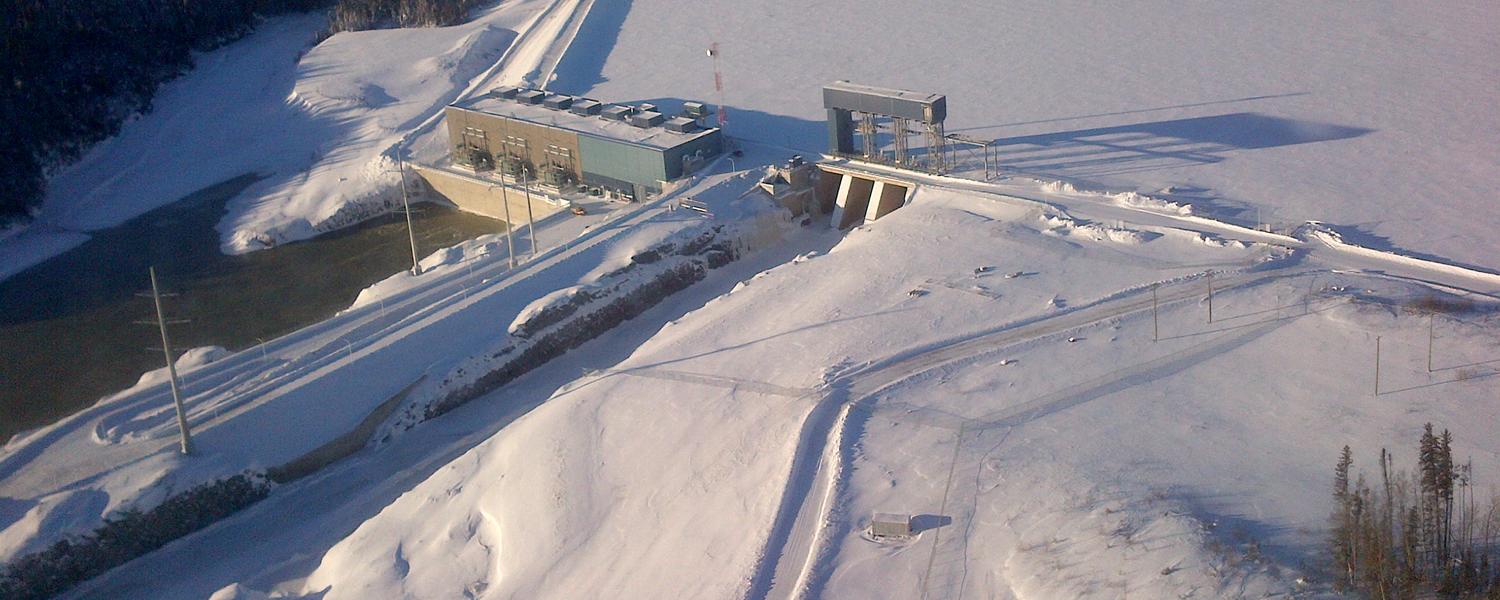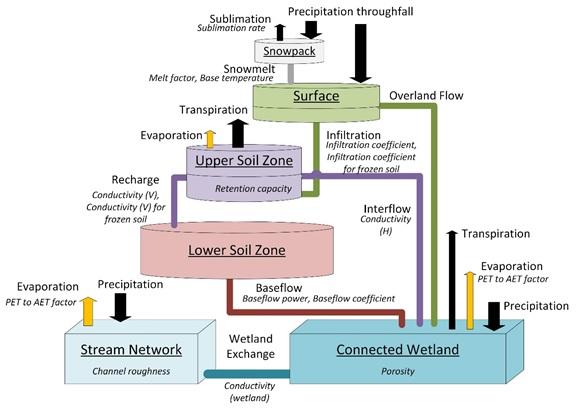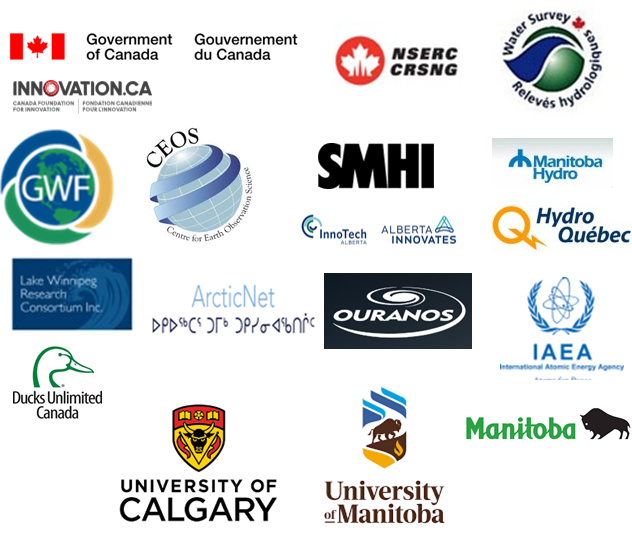An isotopically-enabled hydrologic modelisoWATFLOOD
about us
Hydrology is a highly inter-disciplinary field of study, existing within multiple disciplines of study including Geography, Engineering, Geoscience and Environmental Science. The members of our team encompass each of these areas of study and we collectively bring our respective strengths and curiosity to the table to solve some of Earth's most challenging water resources problems of today. Our group leverages expertise in the disciplines of climatology, hydrology, geography, geomorphology, and oceanography. We provide research-based services related to numerical modelling, stochastic and uncertainty analyses, hydrologic and process-based field studies, and Geographical Information Systems (GIS) mapping.
Our research focuses on large-scale, continental water resource supply and how water supply is changing under future climates. Our group focuses on the scientific understanding of water's movement and distribution on a pan-continental basis, but also on the development of state of the art tools to help track its movement to better predict future water security. Our work is used by water resource managers, forecasters and the hydropower industry within Canada to improve operational control and mitigate environmental impacts. One of our most innovative tools combines water and isotope tracer movement to diagnose the reasons for hydrologic change in the environment and to improve hydrologic data available for better model calibration. Our specialty is in integrating human-influence on the landscape into models, understanding and modelling pan-Arctic hydrology, and advancing data networks and tools used in hydrology. As a Canadian research group, we have specific expertise in cold regions hydrology.

UC-HAL's MissionAdvancing hydrologic modelling using cutting-edge numerical methods
We advance the understanding and management of continental large-scale water resources supply, though the development of state-of-the-art tools, under historic, current, and future of climate. Our work is being utilized by water resource practitioners to help in an improved operational control and reduced environmental impacts.
Equity, Diversion, and Inclusion Policy
We place considerable effort on the recruitment and retention of our personnel, with a strong track record of undergraduate student recruitment via summer internships, leading to subsequent graduate student candidates. This has fostered group coherence, consistency in personnel, and a highly productive team environment with strong interpersonal connections and trust among team members. This strategy has attracted a higher percentage of female and diverse groups onto our team; more than 50% of my current team is comprised of top female scientists and engineers.
As a diverse group, we condemn all forms of prejudice and racism. We strive to be our authentic selves in all aspects of our collective and individual work, and in our personal lives. We stand in solidarity against societal social injustice, and pledge to do our part to be a part of the solution - not the problem. We endeavour to be leaders that will lead by example, calling out and exposing both explicit and implicit biases. As leaders in our field, we recognize and advocate for the economic prosperity and innovation that Equity, Diversion and Inclusion (EDI) bring to academia, industry and government.
UC-HAL represents and practices the core values of equity, diversity and inclusion; supporting talent development among all four designated groups in support of NSERC’s Dimensions Charter promoting EDI in post-secondary education.
Our Truth & Reconciliation Journey
After reviewing Wong et al. (2020) Towards Reconciliation: 10 Calls to Action for the Natural Sciences, UC-HAL team members brain stormed actionable items we could incorporate into OUR science and engineering practice that were meaningful to us and in line with the TRCC recommendations. Here is a summary of our commitment to TRC, as a lab and team of practicing natural scientists and engineers:
1. Include land acknowledgements within our theses, papers, and talks;
2. Provide maps that include treaty and/or first nations community boundaries and outlines, acknowledging their place within the context of our work (https://open.canada.ca/data/en/dataset/522b07b9-78e2-4819-b736-ad9208eb1067); and
3. Draft a plain language, 1-page summary (more visuals than text) that describes your research plan in the context of First Nations values and concerns as part of ones thesis/research proposal. The intent is that this can form “newsletter” content that could then be disseminated to First Nations communities impacted by our labs work.
Get in touch !
ES 316, Earth Sciences Building, University of Calgary507 Campus Dr NW, Calgary, Alberta. uc.hal@ucalgary.ca




